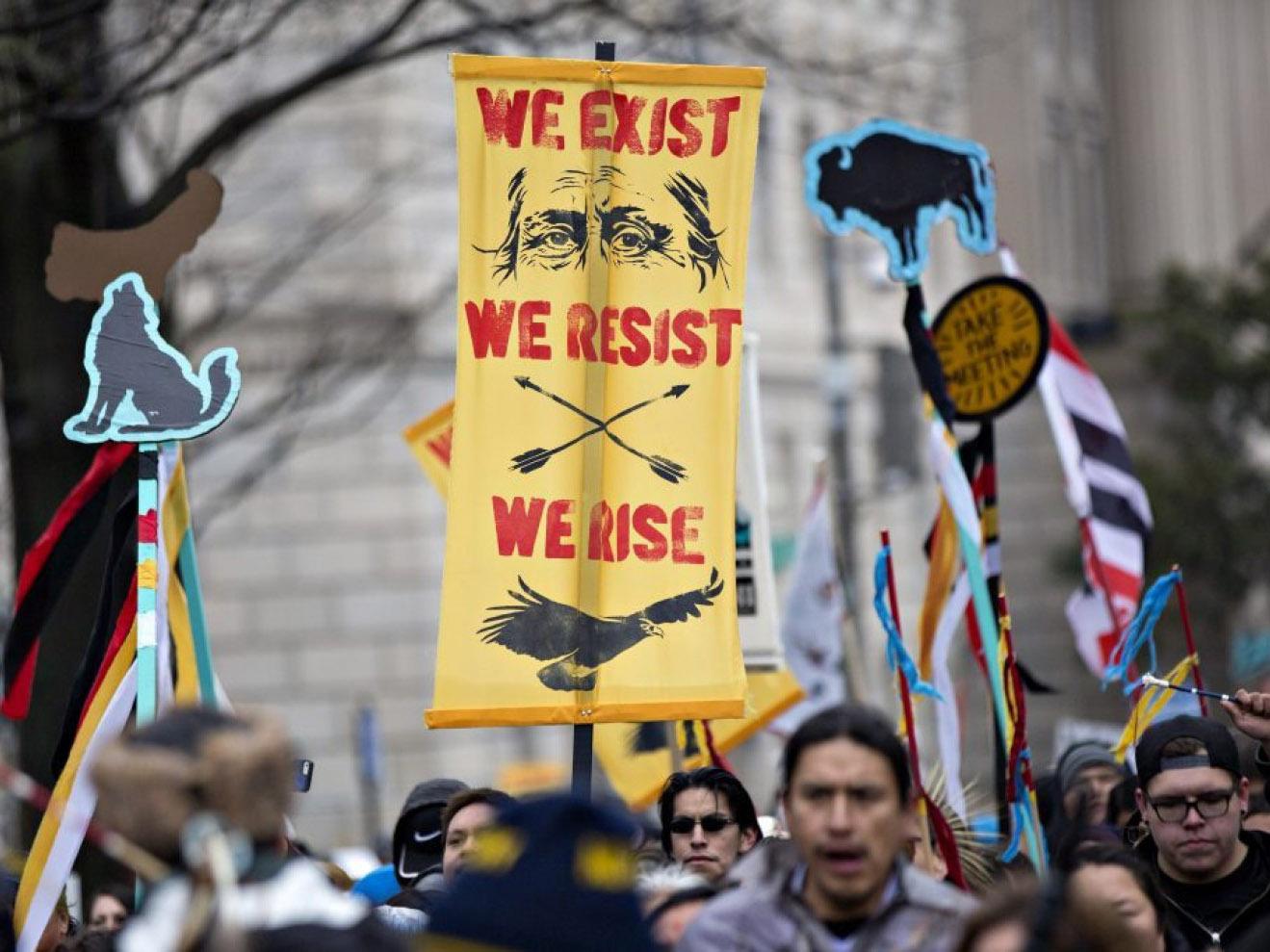Donald Trump is threatening US citizens’ right to peaceful protest, warns UN
International body warns new President's hostility to dissent is a threat to democracy

The right to protest is fundamental to American democracy. The country was born, after all, out of decades of civil disobedience by people angry about taxation without representation. (In Washington, FWIW, we are still angry.)
But according to United Nations human rights investigators, this very basic principle is under attack. Over the past few months, on the heels of a fresh wave of organising by liberals, at least 19 states have introduced measures that would criminalise peaceful protest. In places such as Minnesota, Michigan and Iowa, Republican lawmakers have proposed laws that would stiffen penalties for demonstrators who block traffic.
In North Dakota, GOP leaders are pushing a bill that would allow motorists to run over and kill agitators, as long as the crash was accidental. In Indiana, conservatives want to instruct police to use “any means necessary” to remove activists from a roadway. Opponents worry this could lead to more brutal police response.
Colorado lawmakers are considering a big increase in penalties for environmental protesters. Activists who tamper with oil or gas equipment could be, under the measure, face felony charges and be punished with up to 18 months behind bars and a fine of up to $100,000. A bill pending in the Virginia state legislature would dramatically increase punishment for people who “unlawfully” assemble after “having been lawfully warned to disperse.” Those who do so could face a year in jail and a $2,500 fine.
In Missouri, some lawmakers want to make it illegal to wear a robe, mask or disguise (remarkably, a hoodie would count) to a protest. Lawmakers in North Carolina want to make it a crime to heckle lawmakers.
Taken together, the United Nations warns, these bills represent an “alarming and undemocratic” trend that could have a chilling effect on activism.
“From the Black Lives Matter movement, to the environmental and Native American movements in opposition to the Dakota Access oil pipeline, and the Women’s Marches, individuals and organisations across (American) society have mobilised in peaceful protests,” Maina Kiai and David Kaye, independent UN experts on freedom of peaceful assembly, said in a statement. These bills would make that harder.
“The trend also threatens to jeopardise one of the United States’ constitutional pillars: free speech,” the pair wrote. And the bills violate international human rights law, they said.
Supporters of the measures argue that the laws are needed to maintain public safety. The experts, though, disagreed. “One person’s decision to resort to violence does not strip other protesters of their right to freedom of peaceful assembly,” Kaye and Kiai said.
The Washington Post
Join our commenting forum
Join thought-provoking conversations, follow other Independent readers and see their replies
Comments
Bookmark popover
Removed from bookmarks